7 Foods You Should Never Eat, According to a Nutrition Expert
We all want to eat healthier, but sometimes, the foods we think are good for us can actually be harmful. Dr. Eric Berg, DC, a 59-year-old nutrition expert, discusses the truth about getting healthy and losing weight in his popular video. As the director of Dr. Berg's Nutritionals and a best-selling Amazon author, Dr. Berg specializes in Healthy Ketosis and Intermittent Fasting. With his wealth of knowledge, he's identified seven common foods that you should avoid to optimize your health and well-being.
1. Orange Juice: Not as Healthy as You Think
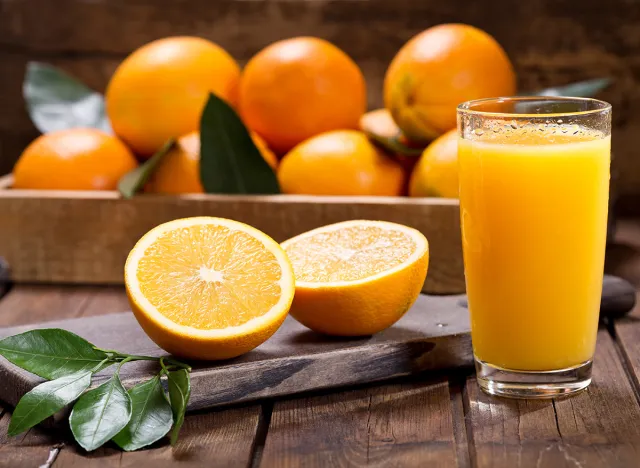
"Orange juice might shock you," says Dr. Berg in his video. "They pasteurize it, destroying much of its nutritional value. It's essentially sugar water that spikes your blood sugar." Dr. Berg explains that the heating process kills enzymes and nutrients, leaving you with little benefit.
Body Network's Resident RDN, Tara Collingwood, agrees. "Whole fruit is much better than juice because you get the fiber to keep you full longer," she says.
2. Soy Protein Isolates: A Hidden Danger
Many vegetarian products and protein shakes contain soy protein isolates. However, Dr. Berg warns in his video, "This is really not a natural food for humans. It's not fermented, doesn't do well in our bodies, and actually irritates the liver."
While soy protein is often praised for its health benefits, there are some concerns about its potential negative effects. According to Harvard Health, some soy products contain estrogen-like chemicals that could have adverse effects. Specifically, soy isoflavones, which are compounds found in soy, have estrogen-like properties that can bind to estrogen receptors in the body. This has led to concerns about potential disruptions to natural hormone levels.
3. High Fructose Corn Syrup: The Sneaky Sugar
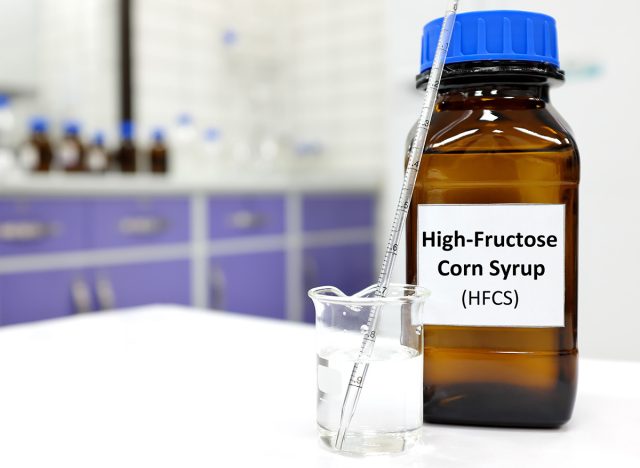
Found in sodas, drinks, and even salad dressings, high fructose corn syrup is a filler you should avoid. Dr. Berg identifies this as a "given" in the list of foods to never eat.
"High fructose corn syrup has crept into more of our foods over the last few decades. Compared with regular sugar, it's cheaper and sweeter, and is more quickly absorbed into your body. But eating too much high fructose corn syrup can lead to insulin resistance, obesity, Type 2 diabetes and high blood pressure," warns Cleveland Clinic.
RELATED: The One Workout Worth Doing Daily to Lose Belly Fat
4. Commercial Meats with Nitrates: A Cancer Risk
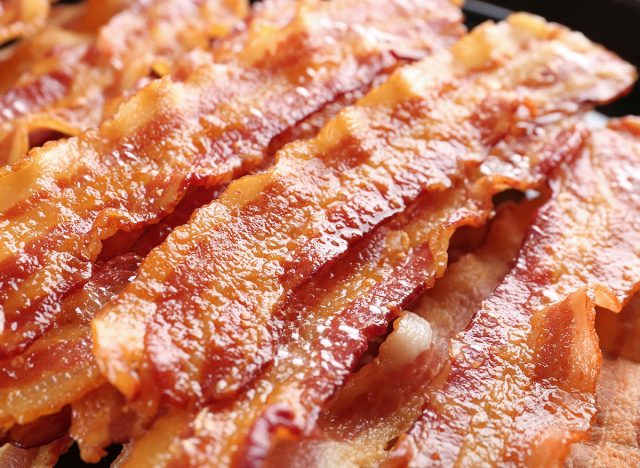
"When you buy bacon or sausage or meats, make sure it's nitrate-free," advises Dr. Berg in his video. He points out that studies have linked nitrates to cancer. Opt for grass-fed, paleo, and hormone-free options instead.
"Nitrates and nitrites prevent bacterial growth and give deli meat its distinctive color and flavor. But there's a downside. Nitrates convert to nitrites, and when nitrites interact with protein, that creates compounds called nitrosamines—which may cause cancer," says Consumer Reports.
5. Commercial Milk: Hormones in Your Glass

Dr. Berg in his video recommends choosing organic or at least hormone-free milk. He explains, "There's a little hormone called RBST, which has some negative effects on the body."
According to the Harvard Gazette, there are concerns about the presence of hormones in commercial milk. Specifically, cow's milk contains significant amounts of female sex hormones, such as estrogen, which have been linked to hormone-dependent cancers like those of the testes, prostate, and breast.
6. TV Dinners: A Nutritional Nightmare
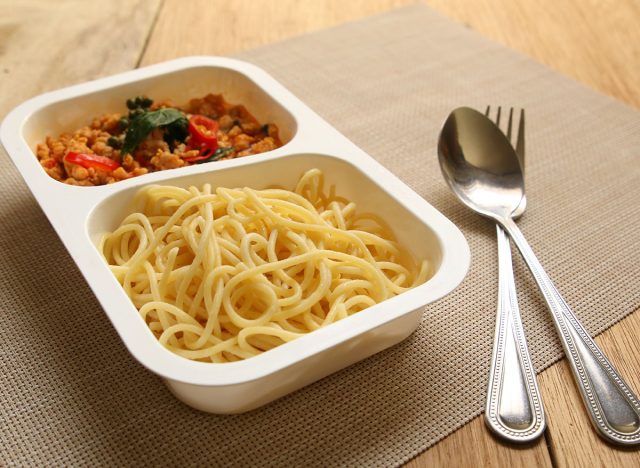
"TV dinners and pot pies are very low-quality food," says Dr. Berg in his video. He warns that combining protein, starch, and dessert in one meal can cause a massive insulin spike.
According to the BBC, TV dinners often contain high levels of sodium, sugar, and additives, which can contribute to health issues such as obesity, heart disease, and other chronic conditions. Additionally, ultra-processed foods, which include many TV dinners, have been linked to an increased risk of cancer, diabetes, and strokes.
RELATED: 5 Tips to Keep Weight Off After the GLP-1 Shots
7. Imported Fruit: Potential Pesticide Problems
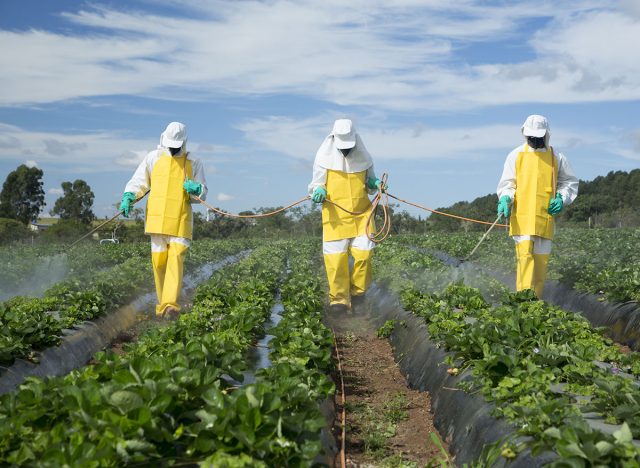
Dr. Berg in his video cautions against fruit from certain countries. "There's a chance they might use DDT, which is banned in America but still sold to other countries," he explains. This exposure can be particularly harmful to children.
"Of the 100 individual fruit or vegetable samples in our analysis with the highest pesticide risk levels, 65 were imported. Most of those – 52 – came from Mexico, and the majority involved strawberries (usually frozen) or green beans (nearly all contaminated with acephate, the pesticide that's prohibited for use on green beans headed to the US)," The Guardian, reported based on a comprehensive pesticide analysis conducted by Consumer Reports.
By avoiding these seven foods, you can take a significant step towards improving your overall health and nutrition. Remember, being informed about what you eat is the first step to a healthier you. And if you enjoyed this article, take advantage of these 15 Quick Ways to Lose Body Fat Percentage in a Week.





